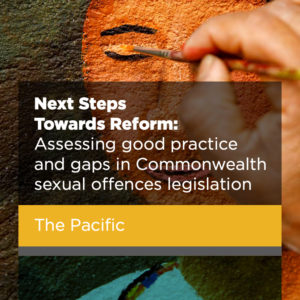In New South Wales, sexual offences laws are found in the Crimes Act 1900 (NSW) as amended (CA). The Evidence Act 1995 (NSW) (EA) and the Criminal Procedure Act 1986 (CPA) contains the rules of evidence which apply to sexual assault offences.
Many of the provisions covered by this review meet good practice standards. For example, the offence of ‘sexual assault’ covers all forms of non-consensual sexual penetration – by penis, objects and other body parts – of all orifices. Non-penetrative offences are broadly defined to include all forms of sexual assault. There is an extensive array of child sexual assault provisions, no moralistic terminology is used, and there are close-in-age defences to child sexual assault offences preventing criminalising consensual sexual activity between young people.
The age of consent is 16 years for everyone. Consensual same-sex sexual activity is not a crime.
However, although the EA explicitly states that corroboration of a sexual assault complaint is not required, the judge’s discretion to warn the fact finder of convicting on uncorroborated evidence is retained. The CPA states that evidence relating to the prior sexual conduct of the complainant is inadmissible, with some limited exceptions.
The full assessment of Australia is available here.



